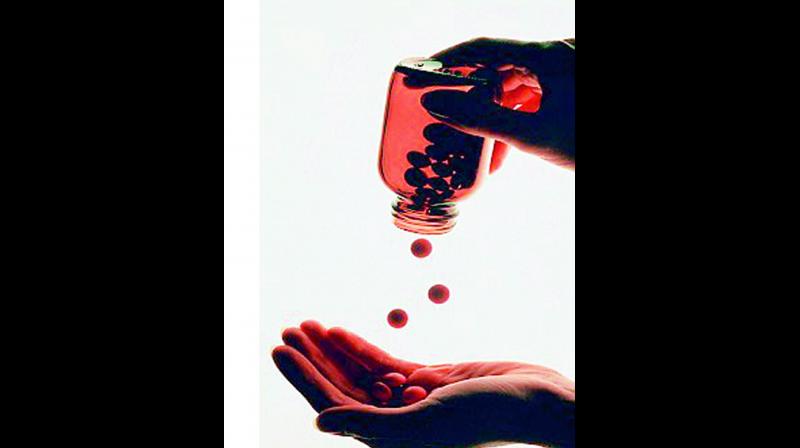Self-medication more risk than remedy

Hyderabad: Self-medication is as high as 30 per cent in India with rampant misuse and abuse of antibiotics, leading to kidney impairment, drug reactions and increased resistance to pathogens. Prevalence of self-medication is about 69.6 per cent in rural areas of Pune and 73 per cent in Punjab. In the southern states, it ranges from 30 to 45 per cent, according to a study.
Dr Dilip Gude, chief consultant physician of internal medicine, said, “The common diseases where self-medication is seen resorted to cold, cough, fever, headaches, respiratory infections and diarrhoea. We find people using doctors’ prescription which was given to them earlier. This is widely practiced in India and for that reason, pharmacists have been asked to check the date mentioned on the prescription. Those who are used to self-medication do not give it up.”
Experts stated that people are wasting not only their time and money but also creating a biological problem of resistance in themselves which they fail to understand due to self-medication.
Allergies, nausea, vomiting, loose motions, insomnia and headache are the side-effects of self-medication. At the clinical-level, it becomes difficult to treat the patient due to the increased resistance. Dr P. R. Sodani, a senior consultant, said, “It becomes difficult as the patient does not respond to the highest level of antibiotics. Either the patient has been on self-medication or too many antibiotics have been prescribed to him/her over a period of time. These cases are on the rise. Hence, patients and doctors are asked to prescribe antibiotics sparingly. Cold, cough and flu do not require antibiotic treatment.”
The experts asked the government to set up a mechanism to address self-medication at the public health-level. The government needs to keep a tab on the sale of medicines which are sold in higher numbers.
High fee makes patients avoid doctors
People go in for self-medication mainly due to exorbitant fees charged by doctors, long wait at hospitals and unnecessary medical tests. Dr K. K. Aggarwal, president of Indian Medical Association (IMA), said, “We have issued circulars, asking doctors not to overprescribe and desist from unnecessary tests. We have to provide a patient-centric approach.”
It has been found that people tend to self-medicate if the same disease recurs. A senior professor of a medical college, on condition of anonymity, said, “Self-medication was earlier an issue as people didn’t have access to quality medical care. Currently, people are not willing to come to doctors as medicines are dumped to meet the targets set by pharmaceutical companies. Hence, they go to pharmacists and pick up the medicine. With the age of internet, many surf the net and check the adverse effects and accordingly adjust their dosage. The reason for this increasing trend is because hospitals, both public and private, have a huge burden and carry out unnecessary diagnosis which drain the patient financially, emotionally and psychologically.”To control the problem, changes will have to be made in the healthcare industry and in the ties between doctors and pharma companies.

